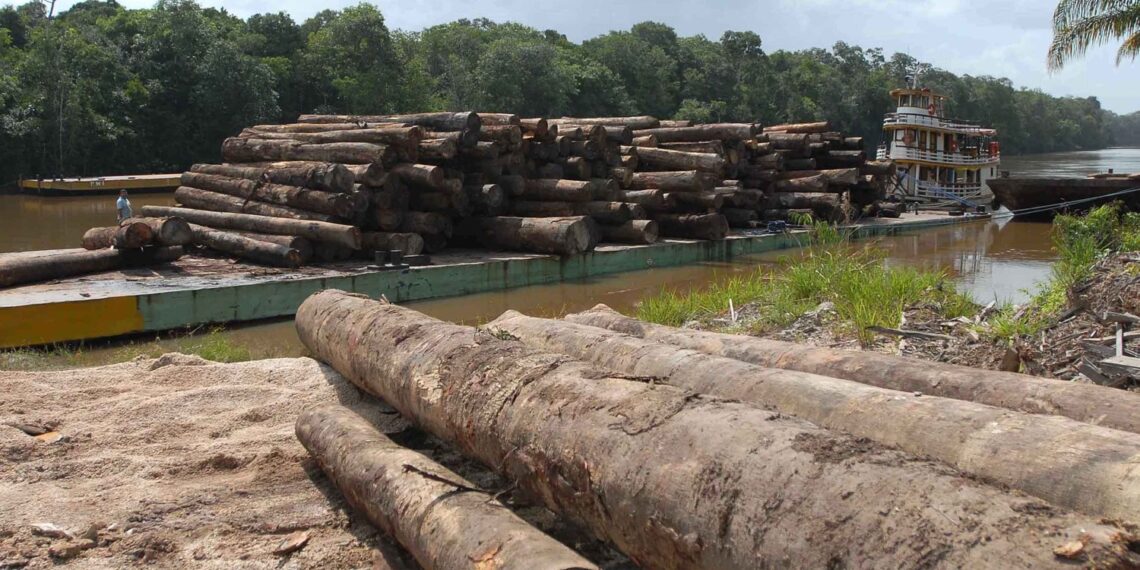[ad_1]

In Brazil, the government’s failed land demarcation policy has led to forced relocations, encroachments on already demarcated lands, and delays in demarcation requests which have allowed extractive industries to trespass and occupy these lands. President Bolsonaro has further provided impetus to the National Indian Foundation (FUNAI), a governmental authority, to arbitrarily deny land demarcation requests through a re-introduction of Bill 490/2007 and a promise “not to demarcate ‘one centimeter’ of Indigenous land.” This Bill defeats the purpose of demarcation as it impedes indigenous peoples from succeeding in land demarcations by placing on them the burden of proving physical occupation on their lands before an arbitrary cut-off date and requiring formal records, which most peoples may not be in possession of due to prior violent displacements from their lands.
The Bill violates the rights of the indigenous peoples on three levels. First, the Bill violates the Brazilian Constitution by disregarding the permanent land rights recognised and guaranteed to them; secondly, it violates the United Nations Declaration on the Rights of Indigenous Peoples (UNDRIP) and the ILO Convention 169; and lastly, the acts of the Brazilian government in depriving the indigenous peoples of their right to property amount to racial discrimination.
Violation of the Brazilian Constitution
Land rights of indigenous peoples, including cultural rights, are regarded as human rights since land is integral to their life and sustenance. Currently, the search for a “valid title” to the indigenous lands disregards their generational existence on these lands under the Brazilian Constitution as well as under the various international instruments. The Brazilian government’s non-recognition of lands owned by the indigenous peoples inherently conflicts with Article 231 of the Brazilian Constitution, which recognises the indigenous peoples’ “permanent rights” over their lands, including the usufructs such as the soil, rivers and lakes.
Violation of International Legal Instruments
The impugned Bill excludes any scope for consultation with the indigenous peoples before undertaking developmental activities in the regions belonging to them, which violates the UNDRIP. Article 10 of UNDRIP explicitly provides that indigenous peoples “shall not” be removed from their lands, and relocations would only be allowed after obtaining the “free and informed consent” of the peoples. Further, the Bill’s cut-off date requirements do not recognise the traditionally occupied lands of the indigenous peoples, which violates Article 26(3) of UNDRIP that requires States to provide legal recognition and protection to indigenous lands.
Additionally, the Bill violates the Indigenous and Tribal Peoples Convention 1989, which was ratified by Brazil, as it deters indigenous peoples from prioritizing the use of their lands by excluding them from participating in decision-making on lands that they are dependent upon but do not exclusively belong to them. The impact of this is particularly significant on the smaller indigenous communities, who currently risk being entirely eliminated due to large scale displacements and elimination of natural resources, similar to the indigenous communities wiped out in the early 20th century. This violates Article 16 of the Convention, which prohibits displacement of indigenous peoples and allows relocation only as a last resort.
Demarcation as Racial Discrimination
Lastly, through the Bill’s demarcation policy, Brazil is depriving the indigenous peoples of their inherent rights, such as the right to hold property and the right to culture linked to their lands. The Government’s stance through the Bill shows that it is targeting indigenous peoples because of their ethnicity, which in accordance with Article 1 of the International Convention on the Elimination of All Forms of Racial Discrimination (ICERD) constitutes “racial discrimination” based on ethnicity. Such actions violate Article 2(a) read with Article 5 of the ICERD, which requires States to not engage or practice racial discrimination.
The indigenous peoples of the Amazon are currently unable to access an effective domestic recourse for the various indigenous rights violations as the Supreme Federal Court has indefinitely shelved the case brought by the Xokleng Tribe, which was clubbed with other similar petitions challenging the Bill’s cut-off date.
In light of such violations, the indigenous peoples could either approach the International Criminal Court (ICC) or the IACHR. Although the APIB, an indigenous peoples protection group, had filed before the ICC to investigate steps taken by Brazil in disregarding indigenous peoples’ lives as crimes against humanity, a destruction of the environment that affects the lives of the indigenous peoples is currently beyond the scope of the Rome Statute. Further, the ICC’s procedural constraints may cause delays since the average time for adjudicating a charge takes several years.
Instead, Brazil’s indigenous groups could approach the IACHR to decide on the deprivation of their right to hold traditional lands and practice culture, as the IACHR offers a speedy and effective redressal mechanism to address the issues faced by them. Although Article 31(1) of the Rules of Procedure of the IACHR requires the exhaustion of domestic remedies before approaching the Commission, the situation in Brazil provides the IACHR with the jurisdiction to process a petition by the indigenous peoples as the Brazilian Supreme Court indefinitely suspending the case is an unwarranted delay in the administration of justice under Article 31 (2) of the Rules.
[ad_2]




